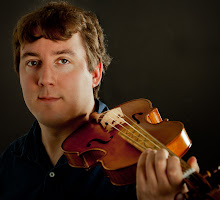"...all this Norrington/Hogwood nonsense. That is absolute and complete asinine stuff. I mean it has nothing to do with music, it has nothing to do with historical performance. Zero. It's nothing, it means nothing...it's made for people who have no sound and no ability to make sound ... it is a complete and absolute farce, it is F**ING AWFUL, it is DISGUSTING...I daresay that in seventy-five years people will listen to his (Heifetz') rendition of a Mozart concerto rather than some idiot that played it on an authentic instrument..."
Then, proving that his opinions weren't specific to certain players and hadn't softened over time, Zukerman followed up in 2000 with:
"I hate it (historically informed performance [HIP]). It's disgusting ... the first time I heard that shit, I couldn't believe it. It's complete rubbish, and the people who play it ... maybe one or two or a half dozen have wonderful musical minds, but I certainly don't want to hear them perform."
"I hate it (historically informed performance [HIP]). It's disgusting ... the first time I heard that shit, I couldn't believe it. It's complete rubbish, and the people who play it ... maybe one or two or a half dozen have wonderful musical minds, but I certainly don't want to hear them perform."
Until a few days ago, I thought that nothing could really top that tirade. But, in an article I read, I came across one Gérard Zwang (pictured), a French surgeon, sexologist and amateur music lover, who in his 1977 book "A contre-bruit" had this to say:
 "I say it in all tranquility. Gustav Leonhardt and consort, Nikolaus Harnoncourt and sons, Frans Bruggen and assistant fifers, Kuijken & Co. are the polluters of the musical environment. They create anti-art, anti-music ... And it is with the greatest joy that [I] would see all those guilty of musical outrages thrown into prison. Imprisonment must be coupled with the destruction, by fire, of those old buggies which they have the effrontery to call musical instruments."
"I say it in all tranquility. Gustav Leonhardt and consort, Nikolaus Harnoncourt and sons, Frans Bruggen and assistant fifers, Kuijken & Co. are the polluters of the musical environment. They create anti-art, anti-music ... And it is with the greatest joy that [I] would see all those guilty of musical outrages thrown into prison. Imprisonment must be coupled with the destruction, by fire, of those old buggies which they have the effrontery to call musical instruments."The scene from "The Red Violin" springs to mind, where one unfortunate character is made to throw his violin into a bonfire by a representative of the Chinese Communist Party. If it was a baroque violin, Gérard Zwang would surely have been dancing on its ashes.
With comments like these, you'd be forgiven for thinking World War III was raging within the musical community. Here was the ultimate assault on familiarity, on grand tradition, on individual expression and personal interpretation; the weapons of war were not bullets and bombs, but harpsichords, gut strings, sackbuts, non-vibrato, treatises and rules. This was a war of musicianship, of ideals, of aesthetics and taste. And at the heart of it was the word authenticity, that most polarising of words. Over time, the word morphed into the self-conscious and slightly embarrassed-with-itself "authenticity", as those in the field of early music realised that the concept quickly disintegrated under close scrutiny.
As with any new ideology, the new had to fight its way through the old in order to be recognised. And with that came the inevitable mocking, from both sides. Largely in order to define themselves, the HIPsters decided that everything that non-early musicians did should be sneeringly labelled 'modern', as if there were only ever one generic way of doing things before people decided to approach music from a historical perspective. Not surprisingly, all the 'modern' musicians retaliated with their own exaggerations; baroque violinists were nothing but scratchers, harpsichordists were "skeletons copulating on tin roofs" etc. In short, early musicians were either failed musicians or bad musicians. Believe it or not, these clichés - or adaptions of them - are still to some extent being tossed around today.
A couple of months ago, I read a book that has significant parallels to the two often-violently squabbling sides in the world of music making. The book is Atheism: A Very Short Introduction, by Julian Baggini. What I appreciated most about this book was its non-militant approach to the topic, its rejection of dogma. Although the author had obviously chosen his side, he pointed out that atheists, in laying out a huge list of scientific, logical and natural reasons for there being no possibility of God, eventually reach a brick wall: someone who firmly believes in God doesn't care about evidence. They just have faith, and that's that. They're certainly not going to abandon their faith just because someone implies they're stupid, illogical, or don't think. Similarly, an atheist is never going to be converted by a believer's "you'll-go-to-hell", "you-must-have-no-morals" or "you're-living a-life-of-sin" scare tactics.
Far better, Baggini says, is for atheists to just get on with their chosen beliefs, to live with conviction and honesty, to know why they live that way, and, in doing so, perhaps win people over to their side. Musicians, both modern and early, should do the same. As an early musician, I can't win anyone over to my side by telling them they're playing mindlessly, or by insulting their interpretative choices. And no mainstream musician will ever convince me that by playing baroque violin and gut strings, I'm part of a "complete and absolute farce". Musicians on both sides must keep discussing, arguing, persuading, but as soon as we start mocking, exaggerating and stereotyping, our side loses the battle.


No comments:
Post a Comment